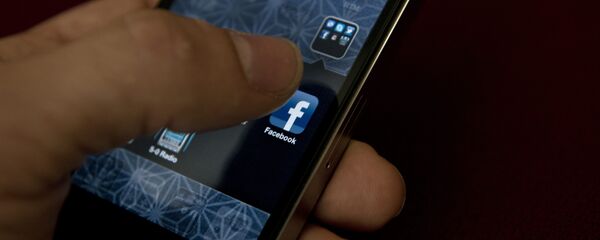The 3-0 decision made by the Third US Circuit Court of Appeals means Francis Rawls, a former Philadelphia police officer, will remain imprisoned unless and until the order finding him in contempt of court is lifted or overturned. Rawls was originally jailed in 2015 for refusing to de-encrypt a pair of hard drives which authorities claim contained child pornography.
In response, he "pleaded the Fifth," but the defense was not accepted, and he was summarily sentenced to indefinite detention for contempt of court, a sentence only to be lifted if and when he unlocked the drives.
As of March 2017, Rawls has spent 17 months behind bars — and the court's ruling means he's likely to remain confined indeterminately unless he obeys the order. Rawls' attorney, Federal Public Defender Keith Donoghue, was reported to be disappointed by the ruling, saying "the fact remained" the government was yet to bring any charges against the accused.
The Fifth Amendment, in essence, protects suspects from being forced to disclose evidence — by invoking the right, suspects in criminal cases are not compelled to answer questions for law enforcement or courts, and generally cannot be penalized for refusing to do so. For privacy and civil liberties campaigners, already concerned with the ongoing crackdown on encryption across the Western world, this ruling may be deeply concerning.
Some campaigners have even suggested governmental demands that companies hand over encrypted data amount to breaches of the Fifth Amendment.
However, Dr. Heather Anson, a consultant at Digital Law UK, says the decision stems from the highly specific circumstances of the case.
"Rawls has likely refused to unlock the drives because doing so will land him in prison for other charges. In tackling his Fifth Amendment defense, authorities cited the 'foregone conclusion exception' to the Amendment, arguing he could not invoke the right because police already had evidence he'd committed the crime of which he's accused — the court agreed with authorities that it was incontestable the drives contained child pornography," Dr. Anson explained to Sputnik.
All of this, according to the Appeals Court, meant the order for Rawls to unlock the drives was entirely lawful, and constitutional. Dr. Anson adds that in another case, where police did not have supplementary evidence, a court ruled a suspect could not be forced to offer up passwords for encrypted files.
Nonetheless, the decision comes as encryption is becoming ever-more ubiquitous on mobile phones, computers and applications.
For example, the contempt of court order against Rawls was obtained by citing the 1789 All Writs Act, the same law the US Justice Department invoked in its legal battle with Apple, which saw a Magistrate Judge order Apple to produce code to enable the FBI to decrypt an iPhone used by one of two shooters who killed 14 at a San Bernardino County government building. The government's quest was ultimately unsuccessful.
These cases, Dr. Anson said, were a demonstration governments cannot act with impunity, and cannot unlock any and all information they wish — and that securing relevant warrants can often be difficult. Moreover, she hopes people will not be swayed into allowing governments to make the process easier for themselves.
"The public should always be concerned about powerful attempts to access encrypted data, and I hope scaremongering over the use of encryption for 'bad things' — terrorism and crime — doesn't turn opinion against encryption," Dr. Anson concluded.






